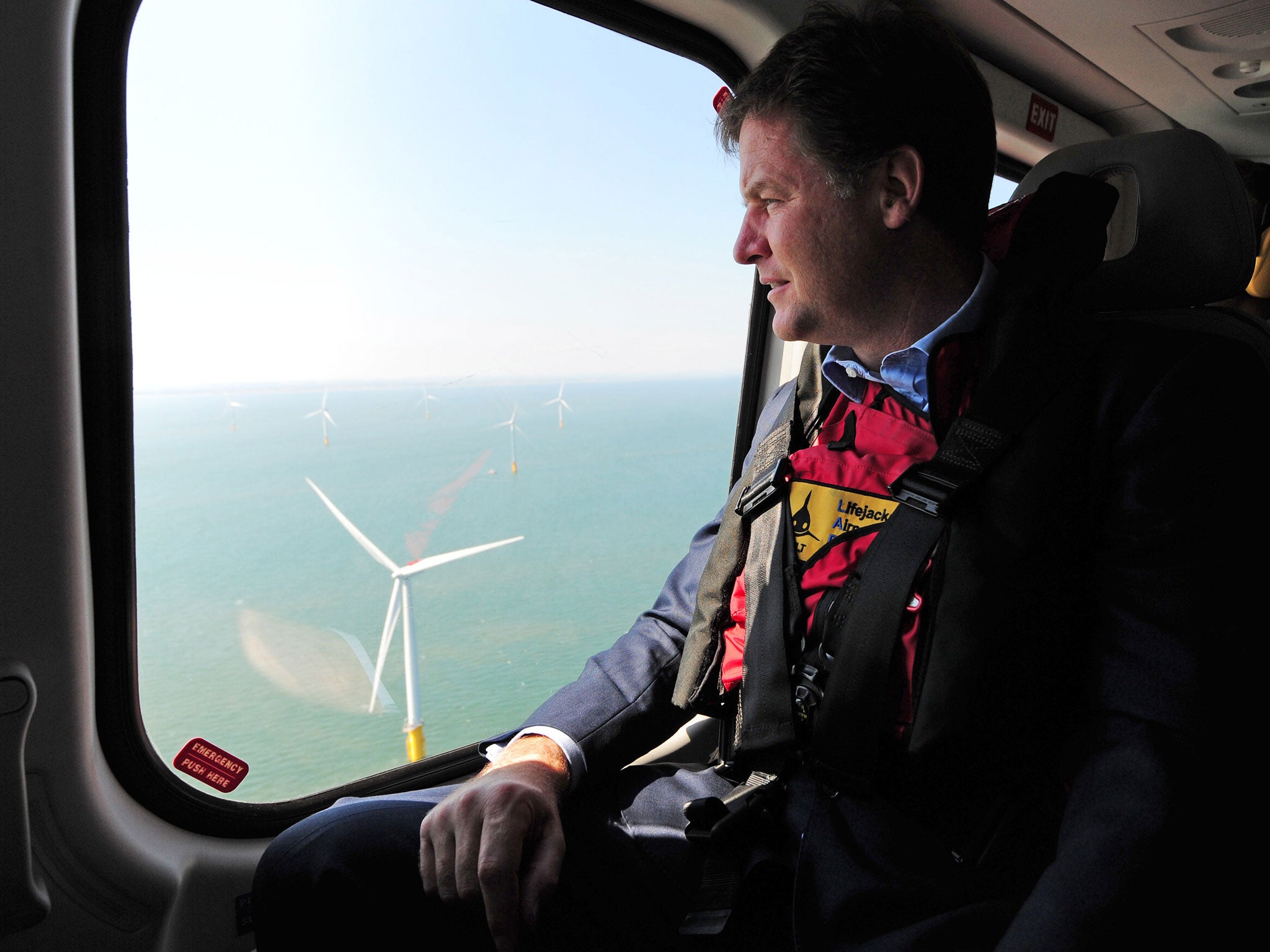Row over how Britain can keep the lights on rages between Tories and Lib Dems
Inside Whitehall: Tories now feel climate change scepticism is not just acceptable but advantageous

There are some rows between the Tories and the Liberal Democrats in government that everybody knows about – but are slightly confected and don’t really matter.
The Conservative backbench Bill for an in/out EU referendum is one (it keeps David Cameron’s Eurosceptic backbenchers happy but is very unlikely to pass). The mansion tax is another (It won’t happen but helps Nick Clegg differentiate his party from the Tories).
But there are other, more important, disputes that rarely make big headlines but have implications that will affect us all. And one of them is going on right now over how best to keep Britain’s lights on.
The nub of the problem is straightforward. Britain has to replace the vast majority of its ageing coal, gas and nuclear power stations that provide us with electricity within the next five years. We’ve known this for a long while – but decision time is imminent.
A few years ago the solution appeared to be that we would invest large amounts of money in new renewable technologies (alongside new nuclear power) with a few gas stations that could be turned on during times of increased demand or lack of supply.
The strategy was broadly supported by all three main political parties as a means significantly to cut our carbon emissions while reducing our reliance on Russian and Middle Eastern gas.
But today that consensus has fallen apart for three linked reasons.
The first is the recession. Renewable energy might be cheaper in the long term but it is a new technology and hugely expensive to get off the ground. What seemed feasible in 2007 seems horribly expensive today.
The second reason is the shifting debate around climate change. Although scientists have not altered their predictions about global warming, the political consensus has fragmented.
A number of Tories now feel that being a climate change sceptic is not just acceptable – but politically advantageous. The Environment Secretary, Owen Paterson, privately questions the scientific case for man-made climate change. Even Oliver Letwin – who advises Mr Cameron across a range of policy areas – is now said to be sceptical about the idea of investing heavily in renewable energy like offshore wind.
What has given succour to the sceptics is the third reason for the energy consensus falling apart: shale gas. We still don’t know how practical it will be to extract the gas which the British Geological Survey says is present in very large quantities across the North of England.
But Mr Letwin – and perhaps more importantly the Chancellor George Osborne – argue behind closed doors that it is stupid to commit billions of pounds to renewables when we could have a plentiful source of energy under the ground at a fraction of the price.
And that takes us back to the current dispute. Mr Clegg and the Climate Change Secretary Ed Davey are pushing hard for the Government not to abandon concrete support for developers of expensive renewables like offshore wind.
And superficially they appear to be winning. Last month the Government published the price it would be prepared to pay for wind-generated electricity. Then last week it published its Offshore Wind Industrial Strategy which outlined a range of incentives to turn Britain into an international hub for offshore wind turbine production.
But this is window dressing and the Tories, led by Mr Osborne and Mr Letwin, may yet sabotage the plans. They have refused Liberal Democrat attempts to give any price guarantees for wind energy beyond 2020 and are refusing to cover the risk of cost over-runs for new wind fields in the contracts.
They have also put off a decision on whether to set a legally binding target for carbon emissions from electricity generation until after the next election.
Together these seemingly small things – which have had little publicity – will be enough to put off a lot of renewable investors from coming to Britain and will effectively strangle the large-scale development of off-shore wind.
Without that investment we may be forced to resort to gas (or even worse) coal to keep the lights on and lose the opportunity to become a world leader in renewable technology. If that happens the climate sceptics will have won the battle by stealth.
Subscribe to Independent Premium to bookmark this article
Want to bookmark your favourite articles and stories to read or reference later? Start your Independent Premium subscription today.

Join our commenting forum
Join thought-provoking conversations, follow other Independent readers and see their replies